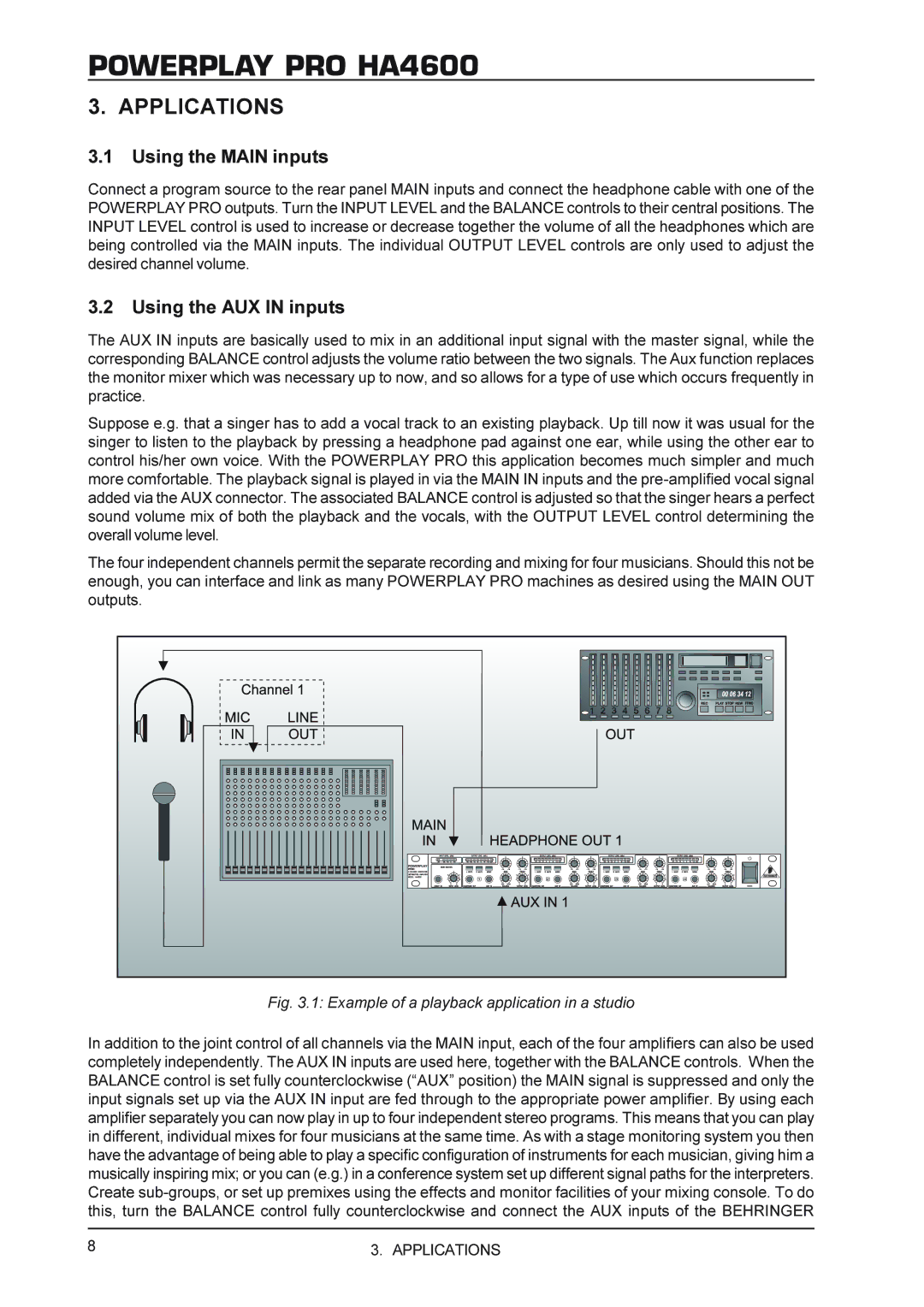
POWERPLAY PRO HA4600
3. APPLICATIONS
3.1 Using the MAIN inputs
Connect a program source to the rear panel MAIN inputs and connect the headphone cable with one of the POWERPLAY PRO outputs. Turn the INPUT LEVEL and the BALANCE controls to their central positions. The INPUT LEVEL control is used to increase or decrease together the volume of all the headphones which are being controlled via the MAIN inputs. The individual OUTPUT LEVEL controls are only used to adjust the desired channel volume.
3.2 Using the AUX IN inputs
The AUX IN inputs are basically used to mix in an additional input signal with the master signal, while the corresponding BALANCE control adjusts the volume ratio between the two signals. The Aux function replaces the monitor mixer which was necessary up to now, and so allows for a type of use which occurs frequently in practice.
Suppose e.g. that a singer has to add a vocal track to an existing playback. Up till now it was usual for the singer to listen to the playback by pressing a headphone pad against one ear, while using the other ear to control his/her own voice. With the POWERPLAY PRO this application becomes much simpler and much more comfortable. The playback signal is played in via the MAIN IN inputs and the
The four independent channels permit the separate recording and mixing for four musicians. Should this not be enough, you can interface and link as many POWERPLAY PRO machines as desired using the MAIN OUT outputs.
Fig. 3.1: Example of a playback application in a studio
In addition to the joint control of all channels via the MAIN input, each of the four amplifiers can also be used completely independently. The AUX IN inputs are used here, together with the BALANCE controls. When the BALANCE control is set fully counterclockwise (“AUX” position) the MAIN signal is suppressed and only the input signals set up via the AUX IN input are fed through to the appropriate power amplifier. By using each amplifier separately you can now play in up to four independent stereo programs. This means that you can play in different, individual mixes for four musicians at the same time. As with a stage monitoring system you then have the advantage of being able to play a specific configuration of instruments for each musician, giving him a musically inspiring mix; or you can (e.g.) in a conference system set up different signal paths for the interpreters. Create
8 | 3. APPLICATIONS |
